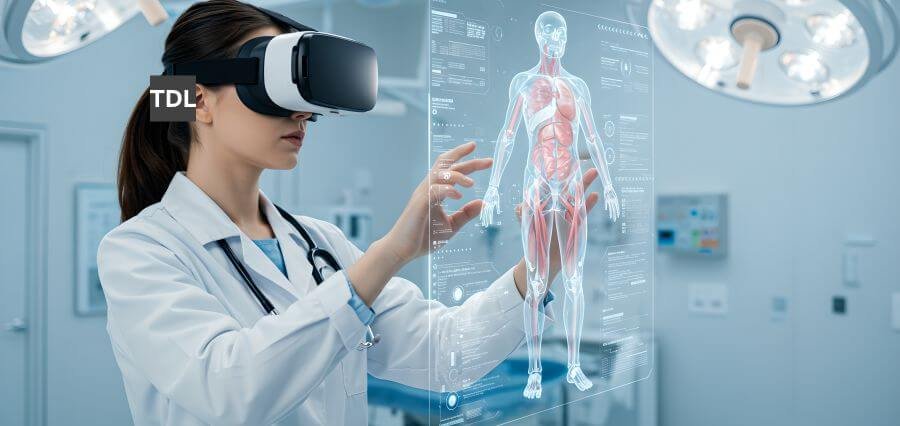The healthcare sector is also going through a fundamental transformation in the backdrop of the fast pace of innovation in the field of medical science and technology. Not only do the new systems of technology enhance the effectiveness of treatment, but they also transform the mode of provision of care, living, and administration fundamentally. Whether personalized medicine or AI-assisted diagnosis, medical revolutions are paving the way towards more precise, high-tech, and patient-focused health systems. Observing these advances, we can confidently say that the intersection of multidisciplinary research and technological innovation is giving rise to a healthier, sustainable global population.
This article highlights three major arenas wherein disruptive medical technologies are making profound breakthroughs: personalized medicine, digital health technologies, and regenerative therapies.
Personalized Medicine and Genomics
Personalized medicine or precision medicine is the beginning of a new model of healthcare. By the application of genetic, environmental, and lifestyle data, doctors can tailor treatment to the unique biological profile of the patient. Genomic sequencing has assisted doctors in determining unique mutations for unique diseases, particularly in cancer treatment. For instance, breast, lung, and melanoma cancer therapies are now designed based on the discovery of individual biomarkers with enhanced survival rates with less side effect.
Besides cancer, pharmacogenomics—the study of how genes affect people’s responses to drugs—is increasingly becoming a clinic standard. This technology enables the best drug selection most likely to work and least likely to have side effects based on a person’s genetic information. With rapidity made affordable by technology, growth is predicted for genomics to be integrated into standard health care so that it becomes part of highly individualized, data-driven treatment regimens that enhance outcome and reduce health care costs.
Digital Health and Artificial Intelligence
The expansion of health technology such as wearables, telemedicine, and mobile health applications is transforming patient interaction with the healthcare system. They provide individuals with real-time monitoring of their health, management of chronic diseases, and remote medical care. Wearables such as smartwatches and fitness monitors track vital information such as heart rate, activity, and sleep and enable early detection of deviations that would otherwise go unnoticed. This steady stream of information not only supports preventive treatment but also enhances the doctor-patient relationship with enhanced and timely intervention. Machine learning and artificial intelligence are taking digital health to unprecedented heights. The AI algorithms can sort through huge volumes of data in an effort to discern patterns, predict epidemic outbreaks, and assist in diagnosis with unprecedented precision.
In radiology, for example, AI computer programs can detect tumors on medical images faster and even more accurately than experienced physicians. Similarly, natural language processing is being used to normalize and digitize electronic health records and reduce clerical drudgery, enabling healthcare professionals to remain free from such activity in order to devote more time to caring for patients. While such problems as data privacy and algorithmic bias remain, there is no doubt regarding the viability of AI in terms of making medicine more efficient and precise.
Regenerative Medicine and Advanced Therapies
Regenerative medicine also holds the promise of restoring health or of replacing damaged tissues and organs, offering hope to those with what were once thought to be incurable diseases. Stem cell therapy, tissue engineering, and gene editing are at the forefront of the revolution. Stem cells have the unique ability to transform into other cell types and are thus of fundamental significance in the restoration of injury and degenerative disease. Stem cell therapies are already withstanding clinical trials to restore function in spinal cord injury, heart disease, and type 1 diabetes patients.
CRISPR-Cas9 gene editing technology is another technology revolutionizing the field. It offers precision adjustment of DNA sequences, and it can be employed to fix genetic defects that bring about such diseases as sickle cell anemia and inherited blindness. The success of some of the most recent gene therapies in producing long-lasting cures of what had previously been considered incurable diseases promises the possibility of revolutionizing treatment. Moreover, 3D bioprinting is also explored as a way to produce organs and tissues, perhaps someday in the near future, putting humanity out of its miserly organ donor shortage. Regenerative medicine, while still in its early stages, is an exciting horizon that has the potential to reconstitute the boundaries of modern medicine.
Conclusion
The confluence of personalized medicine, digital health, and regenerative medicine is ushering in a new paradigm of revolutionary healthcare. Aside from improving diagnostic accuracy and therapeutic intervention, these technologies are also empowering patients to possess better tools for self-management and prevention of disease. As technology evolves, the healthcare systems must prepare themselves to provide equal access, robust ethical underpinnings, and cost-effective utilization of these technologies. They will all need to work together to reach the full potential of these medical developments. Through embracing these advances and breaking their limits, the global community of health can plot a path to a future with more focused, high-precision, and access-oriented care—enhancing health in individuals and populations.




